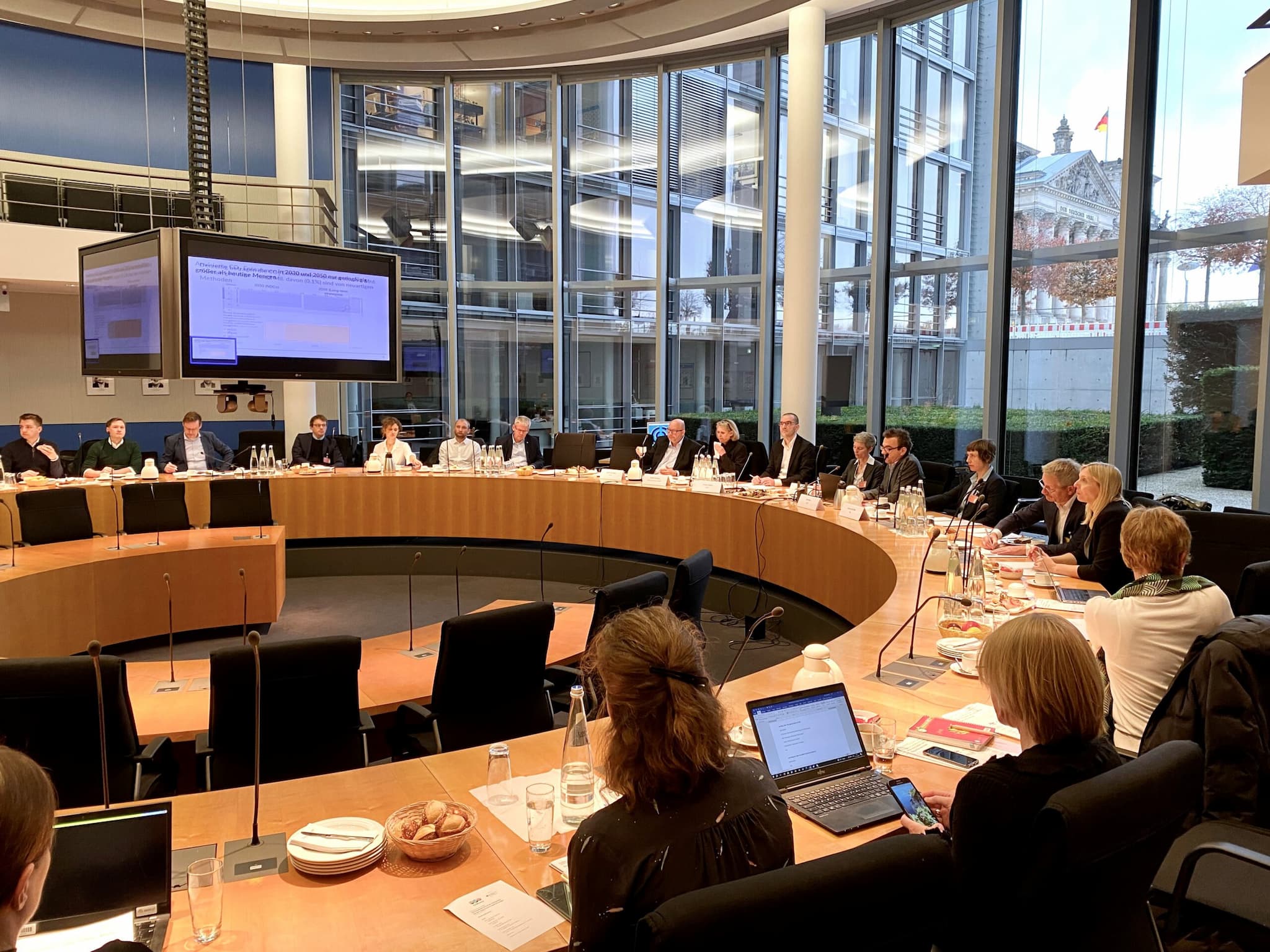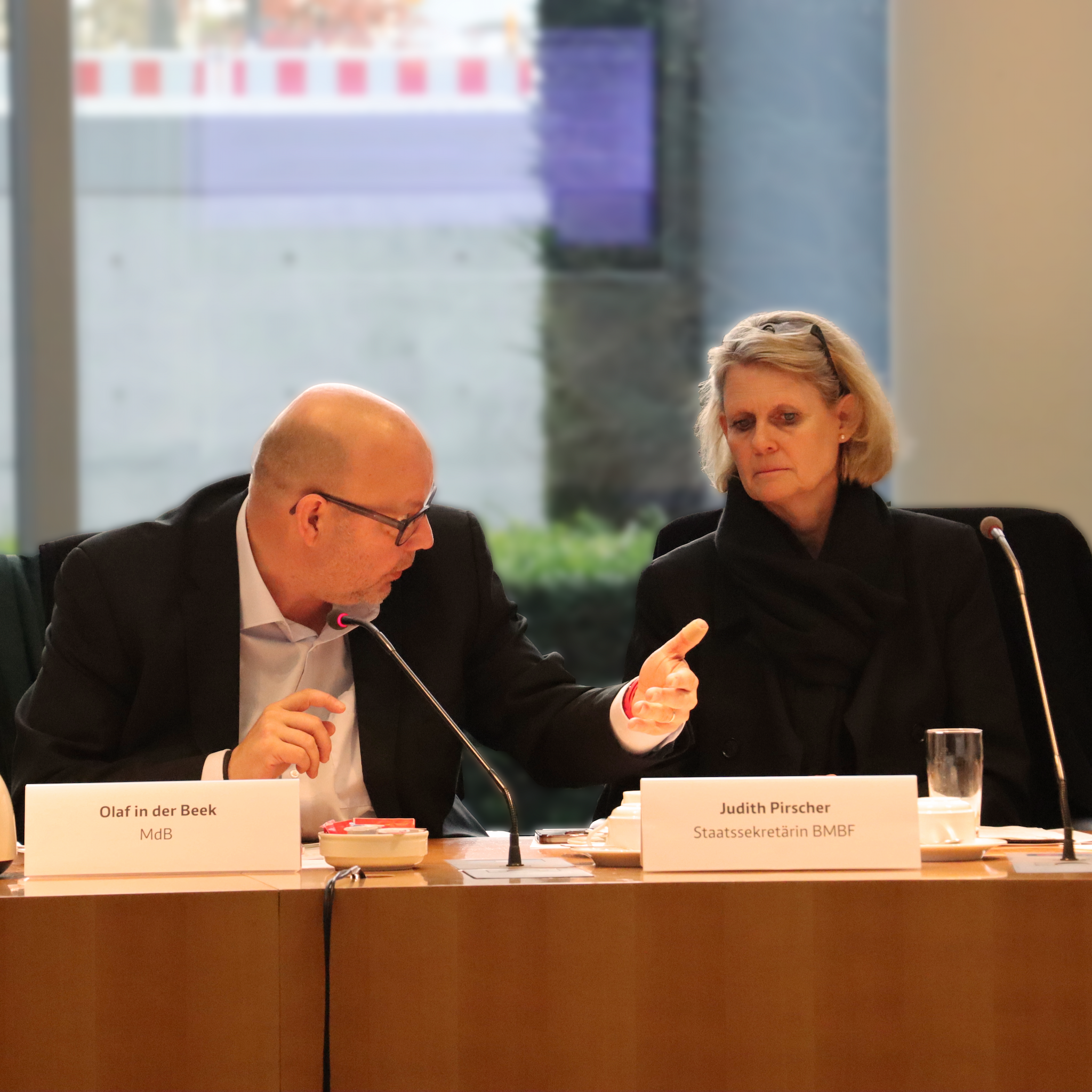Parliamentary breakfast on carbon dioxide removal

What is the current state of research on CO₂ removal? And what political framework conditions are needed to implement CDR measures quickly and on a large scale so that they can contribute to achieving climate neutrality? These questions were the focus of the parliamentary breakfast hosted by CDRterra researchers at the Paul Löbe House in Berlin on November 10, 2023.
What is the current state of research on CO2 removal? And what political frameworks are needed to implement CDR measures quickly and on a large scale so that they can contribute to achieving climate neutrality? These questions were the focus of the parliamentary breakfast hosted by CDRterra researchers at the Paul Löbe House in Berlin on November 10, 2023.
Judith Pirscher, State Secretary at the Federal Ministry of Education and Research, and patron Olaf in der Beek, Member of the Bundestag and climate policy spokesperson for the FDP parliamentary group, were among the circa 40 participants from politics and research.
Dr. Jan Minx from the Mercator Research Institute on Global Commons and Climate Change Berlin (MCC) presented findings from the first “State of Carbon Dioxide Removal” report: almost all current CO₂ removal is based on conventional land-based methods such as afforestation and soil management. This must be continued and expanded: doubled by 2050 for the 1.5-degree pathway compared to 2020, and increased by half for the 2-degree pathway. This requires targeted political control. But practically all pathways also require new extraction technologies, such as bioenergy with CO₂ capture and storage (BECCS) or direct air capture and storage of CO₂ (DACCS). This only accounts for a tiny proportion of current removals. To close the gap, these new technologies need to grow rapidly – by a factor of 1300 by 2050.

“We need a faster pace in the implementation of CDR”
CDRterra spokesperson Prof. Julia Pongratz from the Ludwig-Maximilians-Universität München appealed to politicians: “From the research side, we support the political goal of climate neutrality and aim provide the scientific foundations to achieve this goal. We all need answers to the question on how large the realistic potentials of CO₂ removal methods are in Germany. This relates not just to technical and scientific considerations, but also about how measures can be implemented in a societally, politically, ecologically and economically acceptable way. This is what we are investigating in CDRterra. However, it is also clear that we need to accelerate the implementation of CO₂ removal or else will jeopardize the German climate neutrality target. We therefore need to work on the political framework and start scaling up CO₂ removal measures immediately. Swift action is essential here!”
The event was moderated by Dr. Oliver Geden from the German Institute for International and Security Affairs in Berlin.
New policy brief on CDR terms
Another highlight of the parliamentary breakfast was the publication of a CDRterra policy brief on key terms in the CDR debate. It is intended to prepare political decision-makers and other interested parties for the discussion on the complex issue of CO2 removal.
Download the policy brief “Debatte um die Kohlendioxidentnahme: Wer mitreden will, sollte diese Begriffe kennen“
All participating scientists are part of the CDRterra consortium CDRSyntra. The synthesis project bundles the results from the CDRterra and CDRmare research programs and evaluates the various CO₂ removal methods. The aim is to develop a low-risk portfolio of CDR measures in dialog with science, politics and the public.